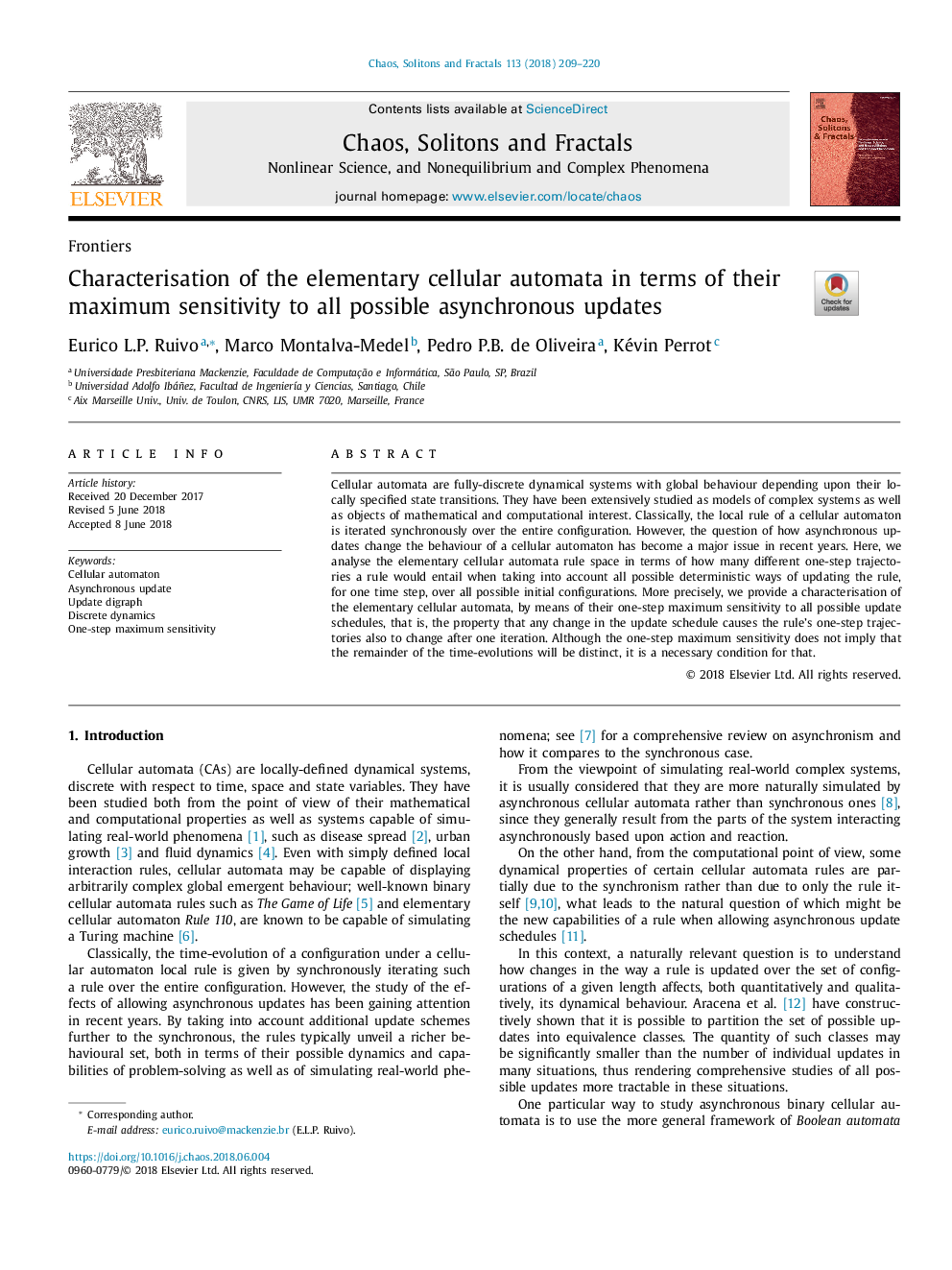| Article ID | Journal | Published Year | Pages | File Type |
|---|---|---|---|---|
| 8253405 | Chaos, Solitons & Fractals | 2018 | 12 Pages |
Abstract
Cellular automata are fully-discrete dynamical systems with global behaviour depending upon their locally specified state transitions. They have been extensively studied as models of complex systems as well as objects of mathematical and computational interest. Classically, the local rule of a cellular automaton is iterated synchronously over the entire configuration. However, the question of how asynchronous updates change the behaviour of a cellular automaton has become a major issue in recent years. Here, we analyse the elementary cellular automata rule space in terms of how many different one-step trajectories a rule would entail when taking into account all possible deterministic ways of updating the rule, for one time step, over all possible initial configurations. More precisely, we provide a characterisation of the elementary cellular automata, by means of their one-step maximum sensitivity to all possible update schedules, that is, the property that any change in the update schedule causes the rule's one-step trajectories also to change after one iteration. Although the one-step maximum sensitivity does not imply that the remainder of the time-evolutions will be distinct, it is a necessary condition for that.
Related Topics
Physical Sciences and Engineering
Physics and Astronomy
Statistical and Nonlinear Physics
Authors
Eurico L.P. Ruivo, Marco Montalva-Medel, Pedro P.B. de Oliveira, Kévin Perrot,
